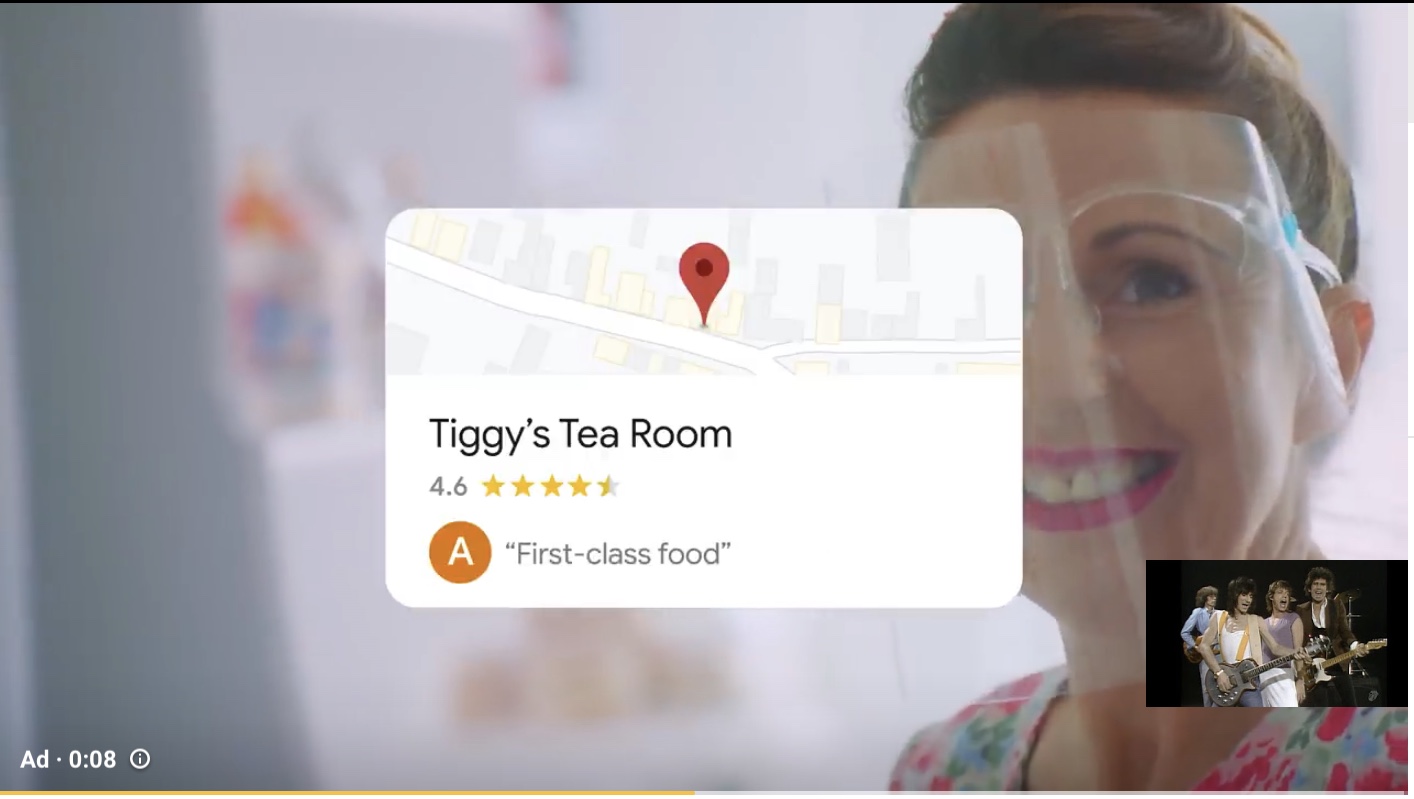Google is running a particularly fatuous advertisement at the moment, clearly designed to appeal to the heart rather than the head. It appears at the start of almost every YouTube video I watch, so I see it several times per day.
“Local businesses have been there for us this year”, says the actor. “It’s time we return the love. Just leave a Google review! Because Google reviews help local businesses stay strong!”

Isn’t that nice? We may be a big cloud-based multinational but we care about the businesses on your local high street.
Now, almost everything about this is wrong. There’s the basic factual inaccuracy: local businesses often haven’t been there for us, poor things — it’s the online businesses that have kept people supplied while they’re shielding. Au contraire, we’ve often ‘been there’ for the local businesses: I’ve often been going out of my way to try and buy from local shops when it would be cheaper, easier and, of course, much safer to buy online. But that phrase is just an appeal to the emotions, so let’s not take it too literally!
No, what bugs me in the ad is the assumption, of course, that they’re good local businesses and you’re leaving them a 5-star review. Which, let’s face it, almost everybody does these days, and I’m no exception, because who wants to be the bad guy who docks them stars for what might seem like trivial complaints? And so we end up in the ridiculous situation of comparing shops, hotels, cafes etc based on whether they have a 4.6-star average or a 4.8-star one.
In a perfect world, the average business or product would have an average of three stars out of five. And we’d have a nice gaussian distribution around that: things slightly better than average would edge up towards four stars while those that were a bit unimpressive would be down in the twos. Only those that were so exceptional that they couldn’t really be improved in any way would get close to five.
It is, of course, part of life, and the same thing has always happened with A-level results, University degrees and so forth. (I have some nice stories from University colleagues about this, but they had better wait for another time.)
So I’d like to see Google run a new set of ads after this one. “Weed out dodgy businesses by leaving a low Google review! Because low reviews help customers like you stay safe.”
Somehow, I can’t see that happening.
There is another way to make reviews actually useful again, of course: Google, Amazon etc could simply revalue the currency: modify all the reviews so that the mean value was three and the standard deviation was appropriate to have a sensible number of twos and fours. You’d need to do it in a fairly sophisticated way, but it’s not rocket science. And you’d need to make sure everybody knew you were doing it, so that there was no misunderstanding.
I suggest a big advertising campaign: “Google Reviews: now the most useful on the planet!” They could put it at the beginning of all the YouTube videos. And it would get five stars from me.
As a customer trying to distinguish between 4.6 and a 4.8 rated businesses/products/etc, more useful would be comparative reviews – A is better than B because …
Photograph management is the only discipline where I’ve seen anything like the opposite advice.
…even though that’s definitely a case of getting to mark your own homework.
The advice I’ve seen is along the lines of “when importing your photos, don’t even bother to give it a single star unless it’s exceptional. Then you’ve got 4 more stars left that you basically never use. If it’s really bad you can just hit the delete button and that’ll hide it but not remove it from the disk.”